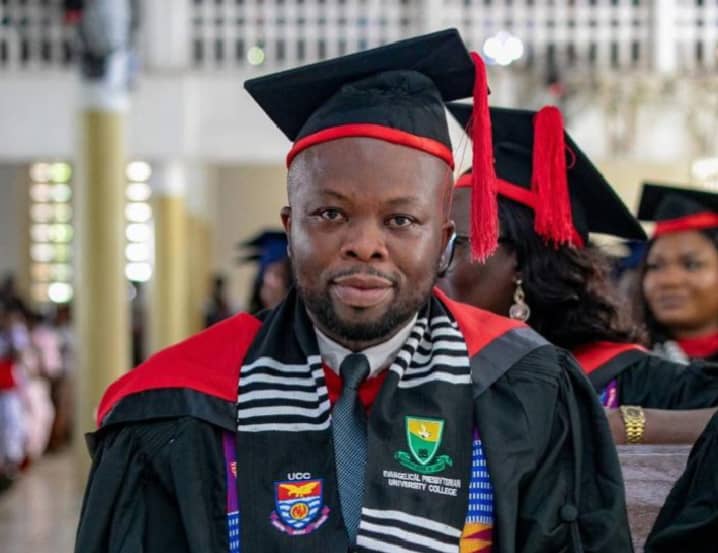The 16th graduation ceremony of the Evangelical Presbyterian Church University College (EPUC) in Ho, Ghana, was a celebration of academic achievement and a call to responsible leadership and impactful living. Valedictorian, Mr. Bright Kwame Ege, addressed his graduating class, emphasizing that true success transcended accolades and financial gains, residing instead in the positive influence one exerts on the world. He urged his fellow graduates to utilize their acquired knowledge and skills not only for personal advancement but also for the betterment of society, championing ethical progress and equitable prosperity. Mr. Ege underscored the importance of integrity and moral leadership in inspiring future generations, reminding his peers of the values instilled in them during their time at EPUC. He highlighted character, empathy, and resilience as the cornerstones of success, emphasizing that their education had blended intellectual rigor with ethical consciousness. He encouraged them to approach future challenges with the tools honed at the university, remaining humble in victory and hopeful in adversity, while also remembering to contribute to the communities that shaped them.
Mr. Ege’s address served as a powerful reminder of the responsibility that accompanies education, a responsibility that extends beyond personal ambition to encompass a commitment to societal well-being. His words echoed the core values of EPUC, which seeks to nurture not only intellectually capable individuals but also ethically grounded citizens. The valedictorian’s focus on character, empathy, and resilience reflects a broader understanding of success, one that prioritizes positive impact and societal contribution. He urged his fellow graduates to become agents of change, using their education to address societal challenges and promote a more just and equitable world. His message resonated with the spirit of service and community development, emphasizing the interconnectedness between individual success and the well-being of the larger community.
The graduation ceremony also highlighted the challenges faced by the university. Acting President, Prof. Tsatsu Dogla-Bessa, acknowledged the severe financial constraints that hampered the institution’s operations, appealing to stakeholders for support to alleviate the financial burden. This appeal underscored the importance of collaborative efforts in ensuring the continued success of educational institutions, highlighting the role of community and stakeholder engagement in supporting academic endeavors. The presence of dignitaries, including the Volta Regional Minister, vice-chancellors from affiliated universities, and traditional rulers, further emphasized the significance of the event and the collective commitment to education. This collaborative spirit underscores the importance of partnerships between educational institutions, government entities, and community leaders in fostering a supportive and enriching learning environment.
The graduating class comprised 222 students, with a relatively balanced gender representation of 115 males and 107 females. A significant number, 50 students, achieved first-class honors, reflecting the high academic standards upheld by the university. The diversity of programs represented, from Bachelor’s degrees in various disciplines to MBAs and other certifications, showcased the comprehensive nature of EPUC’s academic offerings. This diversity speaks to the institution’s commitment to providing a wide range of educational opportunities, catering to the diverse needs and aspirations of its student body. The presence of graduate programs further underscores the university’s role in developing advanced skills and expertise within the region.
The graduation ceremony was not merely a celebration of individual accomplishment; it was a testament to the transformative power of education and its potential to shape a more just and prosperous future. The valedictorian’s message, coupled with the acting president’s appeal for support, highlighted the interconnectedness between individual success, institutional growth, and societal well-being. The presence of dignitaries and community leaders underscored the collective responsibility for nurturing and supporting educational endeavors. This shared responsibility reflects a broader understanding of education as a public good, essential for individual development and societal progress. The ceremony served as a powerful reminder of the importance of investing in education and fostering a culture of learning and growth.
In conclusion, the 16th graduation ceremony at EPUC was more than a celebration of academic achievement; it was a call to action, urging graduates to become agents of positive change in the world. The valedictorian’s emphasis on ethical leadership, community engagement, and character development resonated with the institution’s core values, highlighting the transformative potential of education. The ceremony served as a testament to the power of collaboration and community support in nurturing academic excellence and fostering a brighter future for all. The challenges faced by the university, as articulated by the acting president, further underscored the importance of collective efforts in ensuring the continued success of educational institutions. The graduation marked not an end, but a beginning, a launchpad for the graduates to embark on their respective journeys, equipped with the knowledge, skills, and values to make a meaningful contribution to society.














